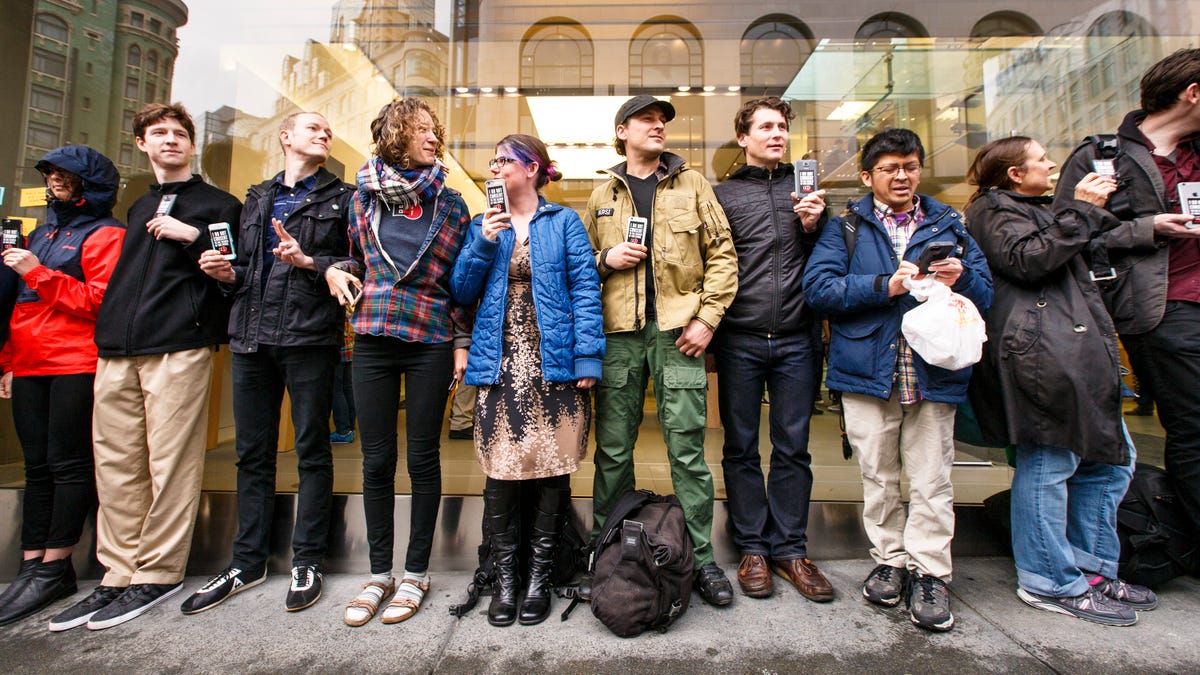The Apple vs. FBI drama isn't close to over yet
The US government called off a hearing slated for Tuesday, but the battle over device security will continue.

Apple may have gotten an 11th-hour reprieve in its fight with the FBI, but that doesn't mean the war over public safety and personal privacy is finished.
Rather, the battle will continue to play out in courts across the country, as well as in Congress. And the issue might not even be over in the California case. The two sides may be back in court next month.
"The government called a 'timeout,'" said Ed McAndrew, a former federal cybercrimes prosecutor and now a lawyer at Ballard Spahr.
Late Monday, the US Justice Department asked a judge to call off Tuesday's hearing over whether Apple should have to make software that lets the FBI unlock an iPhone 5C connected to December's San Bernardino, California, terrorist attack. In a surprise revelation, the government said an unnamed outside party has provided investigators with a method that might provide access to the phone's data. It wants time to explore the alternative way to get into the iPhone.
It's the latest wrinkle in the ongoing tussle between the tech titan and the government over a single iPhone, which has spun out into a broader debate with much more at stake. Technology companies and rights groups argue strong encryption, which scrambles data so it can only be read by the right person, is needed to keep people safe and protect privacy. Law enforcement argues it can't fight crimes unless it has access to information on mobile devices.
The FBI's new tool may make the motion to force Apple to build a "back door" into its phones moot. The FBI has until April 5 to report back to federal Magistrate Judge Sheri Pym.
If the FBI's plan doesn't work, the two sides will be back where they started. Apple attorneys, speaking with reporters late Monday, said it's premature to call the hearing's cancellation a legal victory as the company could be back in court.
Other cases remain
Even if the FBI ultimately succeeds at getting into the iPhone without Apple, this won't be the last time the issue comes up in courts across the world. While the heated battle taking place in California has been fought before a global audience, it's only one of hundreds of cases involving iPhones that law enforcement wants unlocked.
If it's not Apple back in court for a similar issue, it "could very easily be another company tomorrow," McAndrew said.
Apple, for its part, is sure to keep updating its devices and iOS software to make them more secure. The company is expected to detail its next-generation mobile software, likely called iOS 10, at its developer conference in June. And its next major flagship phone, likely called the iPhone 7, is expected to arrive later this year with amped-up security features.
"Encryption based on traditional mathematics and conventional physics is like an arms race," said William C. Snyder, visiting assistant professor of law at Syracuse University and a former federal prosecutor. "Brilliant minds will continue to find better ways to scramble data, and other brilliant minds will continue to find techniques to unscramble the data."
A more secure iPhone
Already, Apple's newer phones, 2013's 5S and later, are immune to what many believe is the most likely method for the FBI to access the iPhone 5C -- creating a copy of the flash memory to prevent it from being erased. It's sort of like saving your place in a video game so you can play the same level over and over after you die, said cybersecurity expert Jonathan Zdziarski.
The technique won't work in any iPhones released over the past couple of years, Zdziarski said, because they are powered by chips that contain what's called a secure enclave. That's the same part of the processor that keeps your financial information secure for Apple Pay and the TouchID fingerprint reader.
It likely will be up to Congress to set some laws for how tech companies should work with law enforcement. Already, a group of US senators reportedly has begun circulating draft legislation that would give federal judges the authority to order companies like Apple to help law enforcement officials access encrypted data.
Another group of congressional lawmakers wants the government to form a commission charged with addressing issues on digital security that have put authorities and companies at odds.
Until legislation becomes clearer, Silicon Valley will be waiting for the next case.
"Accessing this phone will kick the can down the road, but the same interesting issues may just come up again in the not-so-distant future," Orin Kerr, a George Washington University law professor specializing in computer crime law, wrote Monday in an opinion piece on the Washington Post's website.

